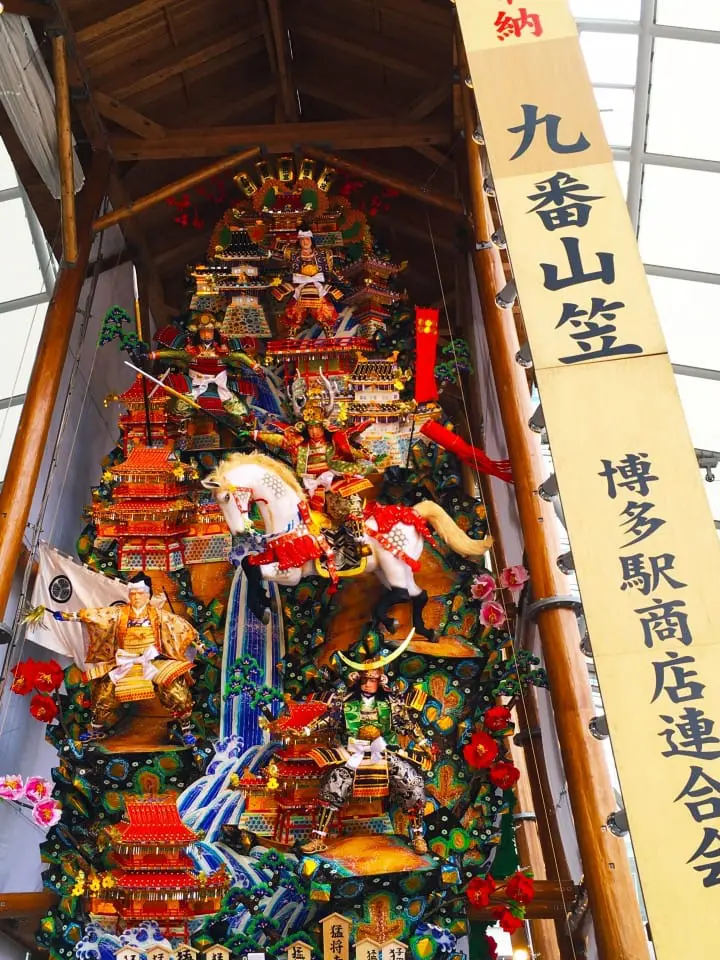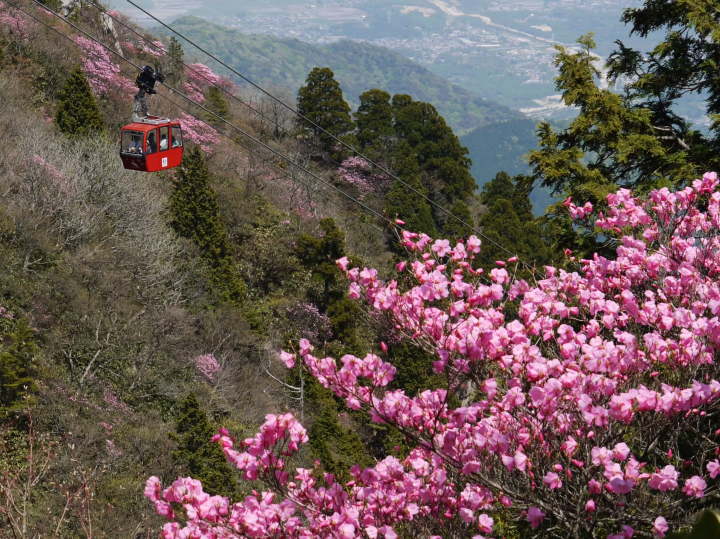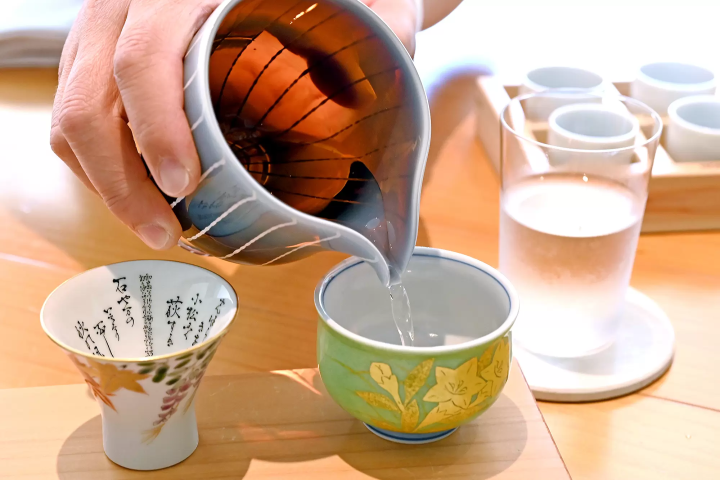Fukuoka's Hakata Gion Yamakasa Festival 2025: See Amazing Traditions!

Hakata Gion Yamakasa Festival, held every year in July in Fukuoka, is the main festival of Kushida Shrine. The floats called yamakasa are paraded around the city and people race carrying the floats. Visit Fukuoka to feel the heat of summer with this festival!
Hakata Gion Yamakasa Festival, the Pride of Fukuoka

©︎JNTO
Held in Hakata, Fukuoka city, in July annually, Hakata Gion Yamakasa is the festival of Kushida Shrine. Registered as a UNESCO intangible cultural heritage, it originated 800 years ago when an epidemic was raging in Hakata. A monk prayed to disperse the epidemic while riding on a wooden float and spreading water around the area.
The festival lasts for eight days, during which hundreds of energetic men run around Hakata carrying floats called yamakasa. You can see the best part of the festival on the last day, oi-yamakasa. Here, teams of men race over 5 km with a yamakasa float starting at 4:59 am. You will surely be overwhelmed by the dynamic way they carry the float.
The passion of Hakata residents for Hakata Gion Yamakasa is so tremendous that some companies even let participants have the day off for the festival. You can truly feel summer has arrived with Hakata Gion Yamakasa this year - the festival schedule, access, and highlights are as below.
Hakata Gion Yamakasa Festival: 2025 Schedule

©︎JNTO
In 2025, the Hakata Gion Yamakasa Festival will be held July 1 - 15 as usual.
For details on the festival highlights of each day, visit the official website of the Hakata Gion Yamakasa Festival.
There are some unique words exclusive to this festival; carrying the floats around is 'kaku', and the people who carry the floats are called 'kakite'.
Nagaregaki on Day 3 and Day 7 (July 10 and July 14 from 16:00)
These are display days where each team's yamakasa is toured around its own area.
Asayama on Day 4 (July 11, 5:00 - 6:00)
From early morning, each yamakasa is toured around its own area.
Tanagaregaki on Day 4 (July 11, 15:00 - 17:30)
Each yamakasa leaves its area and is displayed in other areas as well.
Oiyama-narashi on Day 5 (July 12 from 15:59)
The rehearsal for oi-yamakasa on the last day. Kakite, or the people carrying the floats, run their fastest for 4 km from Kushida Shrine, competing with other teams.
Shudan-yamamise on Day 6 (July 13 from 15:30)
All yamakasa floats get together in central Fukuoka. They run the 1.3 km street from Gofukumachi crossing to Tenjin.
Nagaregaki on Day 7 (July 14, 16:00 - 17:00)
The second nagaregaki to prepare for oi-yamakasa on the last day.
Oi-yamakasa on Day 8 (July 15, 4:59)
Accompanied by the sound of Japanese drums, each yamakasa float heads to Kushida Shrine. After they have arrived at Kushida Shrine, the kakite run their fastest through the 5 km of the oi-yamakasa course.
Venues and Access to the Hakata Gion Yamakasa Festival
You can watch the Hakata Gion Yamakasa around Kushida Shrine. Our recommendation is to go from Hakata Station, the closest train station to Kushida Shrine.
Taking the Nozomi bullet train (shinkansen) toward Hakata from Tokyo Station, you can get to Hakata Station without transferring. It takes about five hours, and the fare is 21,810 yen for a non-reserved seat. It is a short 15-minute walk from Hakata Station to Kushida Shrine.
Highlights of the Hakata Gion Yamakasa Festival
During the eight days of the Hakata Gion Yamakasa, the shudan-yamamise on day 6 and oi-yamakasa on day 8 are especially enjoyable for visitors. But what are these highlights?
Shudan-Yamamise

©︎JNTO
All yamakasa floats assemble at Gofukumachi crossing and head to Fukuoka city hall through Tenjin. You don't want to miss 'dai-agari' where a selection of famous people from Fukuoka, including the Fukuoka city mayor, ride on floats.
Oi-Yamakasa

©︎JNTO
On the last day of the festival, all the yamakasa floats enter Kushida Shrine, but the first team's kakite can have a special privilege; the song of Hakata iwai uta (or the Hakata celebrating song).
The song is a very special song in Hakata to be sung only in celebratory situations, so you won't usually get to hear it. It's a great opportunity to hear this song at the festival.
It is said that young and beginner kakite cannot carry yamakasa float for oi-yamakasa, the climax of the festival. Therefore, only veteran kakite are in charge of carrying yamakasa-float on the day, showing their sophisticated running techniques. Blink and you'll miss their specially trained techniques and dynamic carrying and running.
Kazariyama

A Kazari-yama is a dedicated yamakasa displayed around Hakata. It is 10-15 meters tall.
Fukuoka always gets festive when the 14 kazari-yama are displayed around Kushida Shrine every year. Even if you cannot make it to the festival period this year, don't worry, you can still see the kazari-yama in the Kushida Shrine area and the Kawabata Zenzai Hiroba on the Kawabata market street all year round, even after the festival.
What to Be Aware of During the Festival

©︎JNTO
There are distinctive rules for the 800-year-old Hakata Gion Yamakasa Festival.
Hakata Gion Yamakasa Festival Rules
During Hakata Gion Yamakasa, participants cannot eat cucumbers, people in mourning cannot participate, and only men can touch the yamakasa and go to the kakite meetings. These rules are still followed even today.
There have been discussions on the rules regarding women touching or carrying the floats but these rules have not changed. Nevertheless, everyone can enjoy watching Hakata Gion Yamakasa Festival from the various viewing spots.
Allow Yourself Enough Time to Get to the Venue
The sixth and eighth days of the Hakata Gion Yamakasa Festival are always extremely busy.
Getting tickets for the viewing seats around Kushida Shrine, called sajikiseki, is very hard as they are sold at Kushida Shrine only on June 26 every year. We recommend you allow yourself enough time to get to the venue one to two hours before the events start if you want to watch it from a good spot.
The citizens of Fukuoka pour their souls into this historic festival every season. Enjoy the energetic and exciting spirit of Hakata with them this summer!
FAQ
What is the festival in Fukuoka in July?
In Fukuoka, one of the prominent festivals that takes place in July is the Hakata Gion Yamakasa Festival. This festival is a significant cultural event deeply ingrained in the city's traditions and history. During the Hakata Gion Yamakasa Festival, elaborate floats known as "Yamakasa" are paraded through the streets of Hakata. Participants carry these large floats on their shoulders in an impressive display of strength and teamwork. The festival features a lively atmosphere with traditional performances, music, and local culinary delights, attracting both locals and visitors to experience this colorful and dynamic celebration of Fukuoka's heritage.
What is the biggest festival in Fukuoka?
One of the biggest and most famous festivals in Fukuoka is the Hakata Gion Yamakasa Festival. This traditional event takes place annually in July and is deeply rooted in the city's history and culture. During the Hakata Gion Yamakasa Festival, large decorative floats (Yamakasa) are paraded through the streets of Hakata, showcasing intricate designs and craftsmanship. Participants carry these floats on their shoulders in a spectacular display of strength and coordination, attracting both locals and tourists alike. The festival is a vibrant celebration filled with traditional performances, music, and local delicacies, making it a significant cultural event that draws people from far and wide to Fukuoka each year.
Is July a good time to visit Fukuoka?
July can be a varied time to visit Fukuoka due to the prevailing weather conditions. This month falls within Japan's rainy season, characterized by hot and humid weather with temperatures typically ranging between 26°C to 31°C (79°F to 88°F). The region experiences increased rainfall during this period, making it necessary for visitors to be prepared for wet weather. While the climate might be uncomfortable for some due to the high humidity, there are still aspects to enjoy, such as the vibrant green landscapes and events like the Hakata Gion Yamakasa Festival. Travel costs could be lower during July, but there is a possibility of flight delays or disruptions caused by the inclement weather. For those willing to navigate the rainy season and cope with the humid conditions, a trip to Fukuoka in July can still offer unique experiences and sights with proper planning and packing for the weather.
Why is Fukuoka so popular?
Fukuoka, a vibrant city in southern Japan, is popular for its diverse attractions that cater to a wide range of interests. Renowned for its delectable culinary scene, Fukuoka offers local delicacies like Hakata ramen and fresh seafood that draw food enthusiasts. The city's rich history and culture are showcased through historical sites such as Fukuoka Castle Ruins and Dazaifu Tenmangu Shrine, providing visitors with a glimpse into its cultural heritage. Modern amenities abound in Fukuoka, with shopping districts like Canal City Hakata offering a mix of shopping and entertainment. Its natural beauty is evident in the surrounding landscapes, including beaches, mountains, and hot springs, offering opportunities for outdoor activities and relaxation. Fukuoka's calendar is dotted with vibrant festivals like the Hakata Gion Yamakasa, blending tradition with community celebration, while its accessibility as a transportation hub makes it a convenient gateway to explore Japan and beyond. This unique blend of culinary delights, historical sites, modern amenities, natural landscapes, cultural events, and connectivity contributes to Fukuoka's popularity as a dynamic and welcoming destination that caters to a diverse range of visitors.
What is the history of Hakata Gion Yamakasa festival?
The Hakata Gion Yamakasa festival in Fukuoka, spanning over 770 years of history, has deep roots in local traditions and spirituality. Originating in the 13th century as a ritual to combat a plague, the festival evolved into a symbol of community unity, devotion, and cultural heritage. Central to the event are the majestic yamakasa floats, intricately adorned structures that embody the strength and solidarity of the region. The highlight of the festival is the exhilarating Oiyama race, where teams of men compete in a relay to carry these ornate floats through the streets of Fukuoka, showcasing physical prowess, teamwork, and unwavering dedication. Designated an Important Intangible Folk Cultural Property of Japan, the Hakata Gion Yamakasa festival stands as a cherished and enduring tradition that continues to captivate and unite participants and spectators, celebrating centuries of spiritual significance and cultural legacy in Fukuoka.











































![[Kagoshima] Enjoy Minamisatsuma City to the Fullest! A Guide to the Scenic Beauty and Culture of Five Areas](https://resources.matcha-jp.com/resize/720x2000/2026/02/15-258755.webp)

![[Yufuin]Yufuin in 100 Minutes: Quick Access Guide](https://resources.matcha-jp.com/resize/720x2000/2026/02/15-258738.webp)
![[Shinjuku Nishiguchi HALC] About the d Point Campaign](https://resources.matcha-jp.com/resize/720x2000/2026/02/14-258714.webp)
